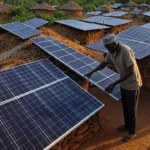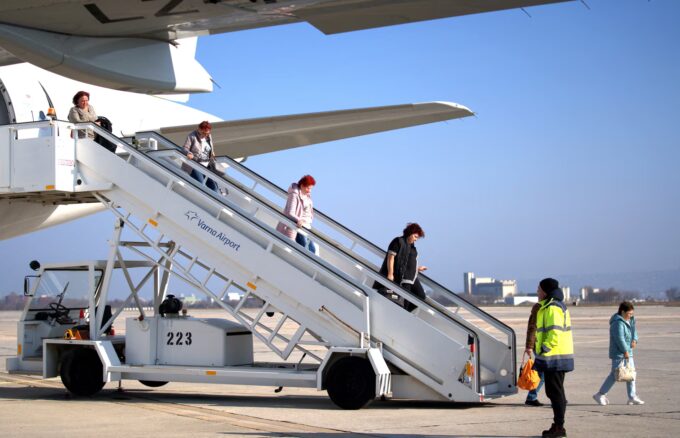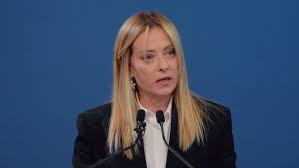Uganda’s opposition leaders and civil society figures have strongly criticized a controversial agreement with the United States that will see the East African nation accept deported migrants, raising alarm over the lack of parliamentary approval and the political implications of the deal. The move has sparked widespread debate, with critics charging that President Yoweri Museveni is leveraging the arrangement to ease international pressure on his government and secure potential economic concessions from Washington.
The agreement came to light after the U.S. Department of Homeland Security confirmed that Kilmar Abrego Garcia, a high-profile detainee from El Salvador accused of human smuggling, was being processed for deportation to Uganda. Ugandan officials, however, have shared few details about the arrangement, stating only that they preferred to receive deportees of African origin and not those with criminal records. Despite these claims, the secrecy surrounding the negotiations has fueled suspicion and criticism.
Prominent opposition lawmaker Ibrahim Ssemujju said Museveni would be eager to cooperate with the United States despite ongoing sanctions against many of his allies. “Museveni will be happy. He will be asking, ‘When are you bringing them?’” Ssemujju remarked, suggesting the deal is politically convenient for Uganda’s long-serving leader. Former opposition leader Mathias Mpuuga also condemned the agreement, calling it “perplexing” given that Uganda already hosts large numbers of refugees fleeing conflict in neighboring countries. Without parliamentary oversight, Mpuuga argued, “the whole scheme stinks,” framing the arrangement as more about “economic expediency” than humanitarian responsibility.
The controversy is compounded by the fact that Ugandan negotiators are believed to have reported directly to President Museveni, bypassing parliamentary scrutiny. This lack of transparency has triggered anger among lawmakers who insist such a deal must go through Uganda’s National Assembly. The government has remained largely silent, with Attorney-General Kiryowa Kiwanuka and ministers overseeing internal affairs and refugee management declining to comment. In a confusing twist, Uganda’s deputy foreign affairs minister Okello Oryem dismissed reports of the deal as “complete rubbish” — only for his permanent secretary to later confirm that an agreement was indeed in place.
The timing of the deal is particularly significant. Uganda has come under growing international pressure in recent years over corruption, democratic backsliding, and widespread human rights violations. The Biden administration has imposed sanctions on several top Ugandan officials, including parliamentary Speaker Anita Among, the prisons chief, a former police chief, and other military and government figures. Relations soured further in 2023 when Museveni signed into law one of the world’s harshest anti-LGBTQ bills, prompting additional U.S. sanctions and straining ties that were once anchored in Uganda’s support for U.S.-led counterterrorism operations in Somalia.
Political analysts argue that Museveni is using the migrant deportation agreement as a bargaining tool to repair ties with Washington and reduce the pressure of sanctions. Marlon Agaba, executive director of the Anti-Corruption Coalition Uganda, said the deal provides Museveni with both political cover and potential economic incentives. “The deal eases pressure on Museveni and may come with trade opportunities,” Agaba noted, adding that any authoritarian leader would welcome the transactional approach favored by Washington.
For Museveni, who has ruled Uganda since 1986 and is often described as one of Africa’s most enduring strongmen, the arrangement signals both resilience and vulnerability. On one hand, it allows him to position himself as a strategic partner to the United States; on the other, it exposes the fragility of his domestic legitimacy as opposition leaders call for accountability and demand that Parliament be involved in such significant agreements.
As critics intensify their calls for transparency, questions remain over what Uganda stands to gain from accepting deportees and how the government will manage potential social and security challenges arising from the deal. With opposition leaders threatening to escalate their campaign against the agreement, the controversy underscores the deepening rift between Museveni’s government and those demanding greater accountability in Uganda’s governance.














Leave a comment